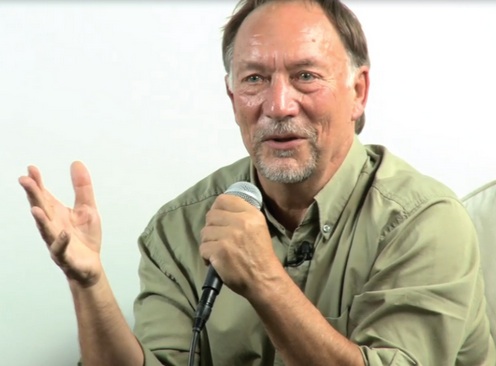 Peter Russell
Peter Russell
Deep down we are all of the same kind. We all want to feel at ease, to be treated with respect, to feel cared for and appreciated. None of us want to feel criticized, rejected, humiliated, ignored or manipulated. To reduce it to its simplest terms, we each want to feel loved. I do not mean love in a romantic sense, or some outpouring of emotion, but simple caring. This is the universal bottom line of every human relationship.
If each of us would like to be treated with kindness, then it should be our intent to give this to others. But often we do the exact opposite. Instead of trying to ensure that the other person feels cared for and appreciated, we can end up in a vicious circle of recrimination and attack.
The Vicious Circle
It usually starts with feeling hurt over something that someone said or did. Whether they intended to hurt us, or whether it is only in our imagination, doesn’t matter. The fact is we feel hurt. Then, if we are not fully conscious of our own inner processes, we are likely to defend ourselves by attacking back in some way. It’s not the noblest or wisest response, nevertheless that is the way we less-than-enlightened folk tend to react.
The vicious circle can be broken if we start from recognizing that just as we want to feel loved and at ease, so do they. Our intention then becomes: How can I communicate so that the other person does not feel attacked or rejected, but cared for and respected?
We can start by becoming vigilant against attacking attitudes. Filtering out our less-than-noble thoughts can remove much of the problem.
This does not mean we should not speak our truth. Instead, explore how to do so in a way that the other person feels appreciated rather than attacked. When you have something difficult to say, you might preface it with the reason why you want to say it, letting the person know it comes from an attitude of caring rather than attack. For example, you might start by saying: “I value our relationship, and want to see it grow, but for that to happen, I need to discuss an issue that is difficult for me.” This sets a very different tone than simply blurting it out.
Or it may help to express your own fears—they are also part of the truth. Revealing your fear of rejection or of being misunderstood, can help others appreciate your concerns and put them more at ease.
And when this practice slips, as it surely will from time to time, and the attacking mode creeps back in, there is nothing like a genuine apology to set things back on track.
Englishman Peter Russell is a writer and speaker who focuses on mind, consciousness, perennial philosophy, the core truth of spiritual traditions, science and environment. He traveled to India to study meditation and eastern philosophy.






